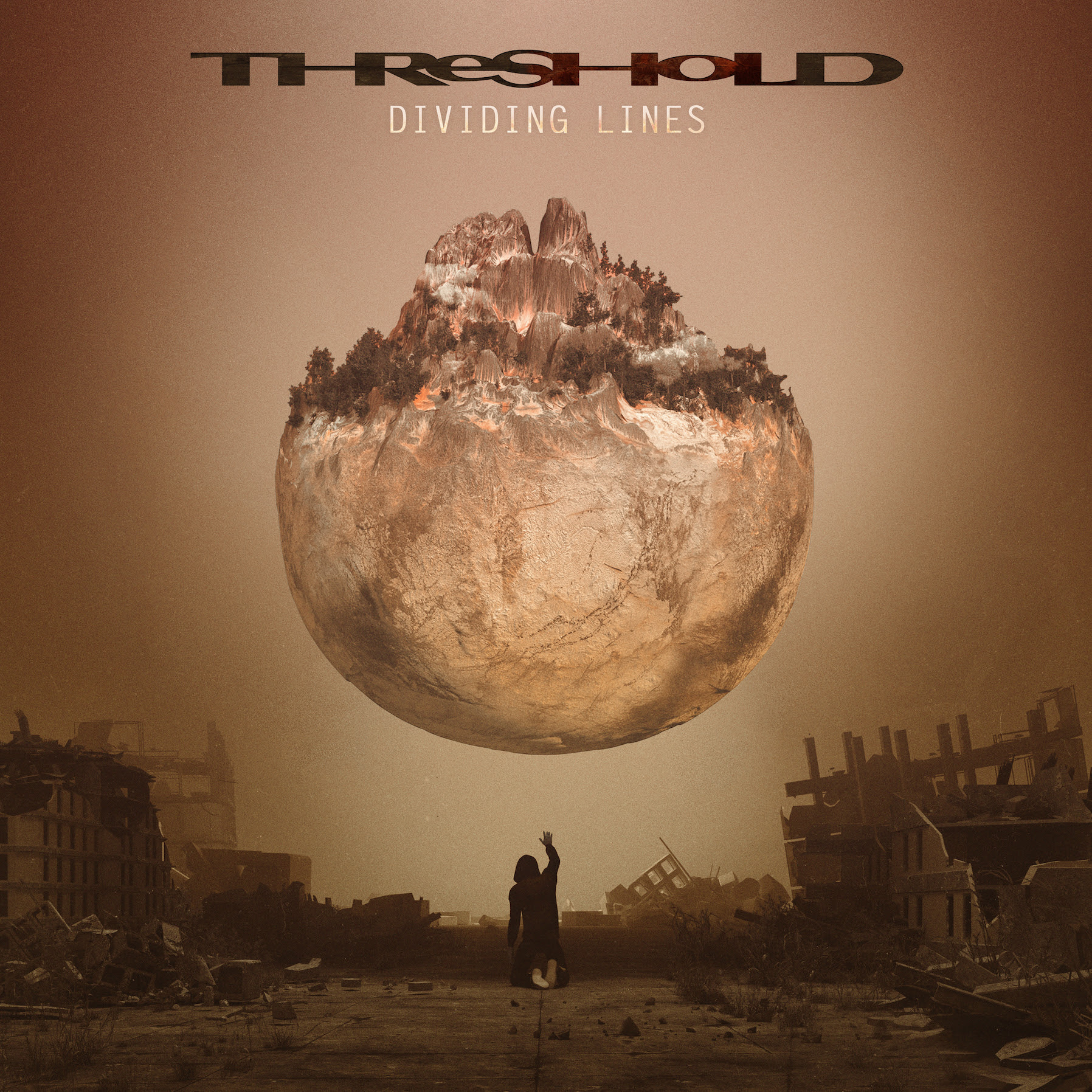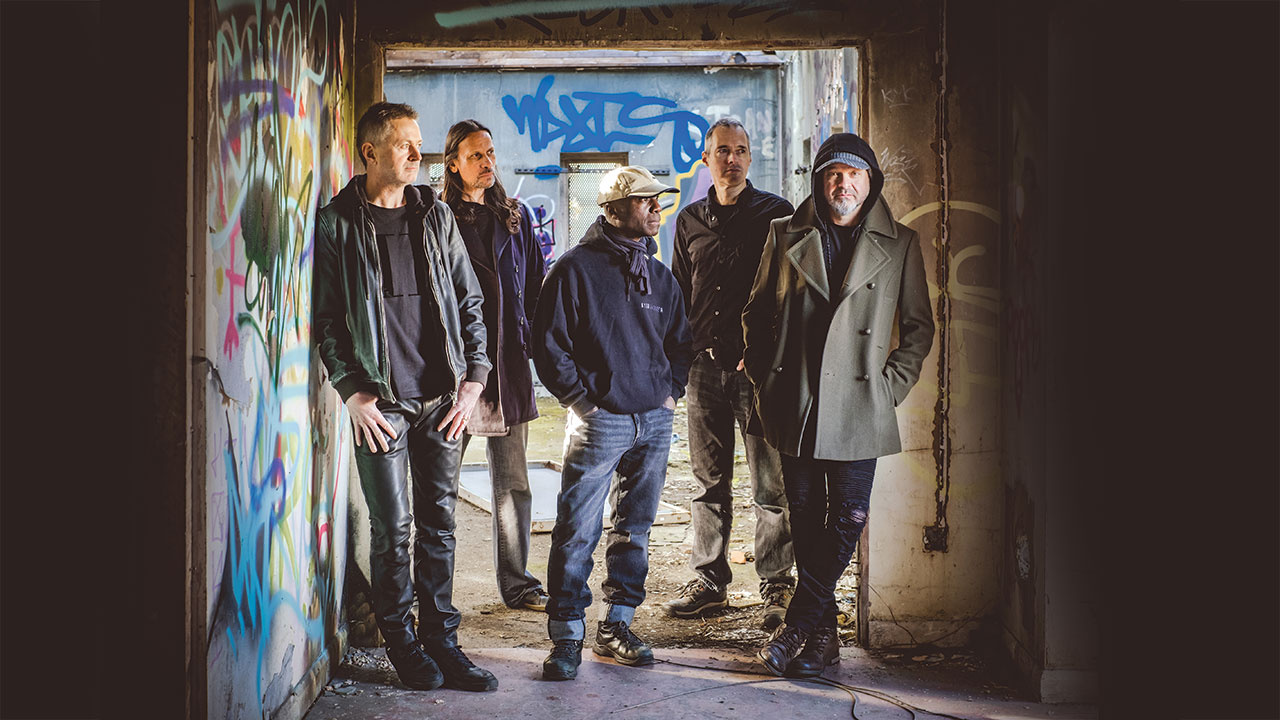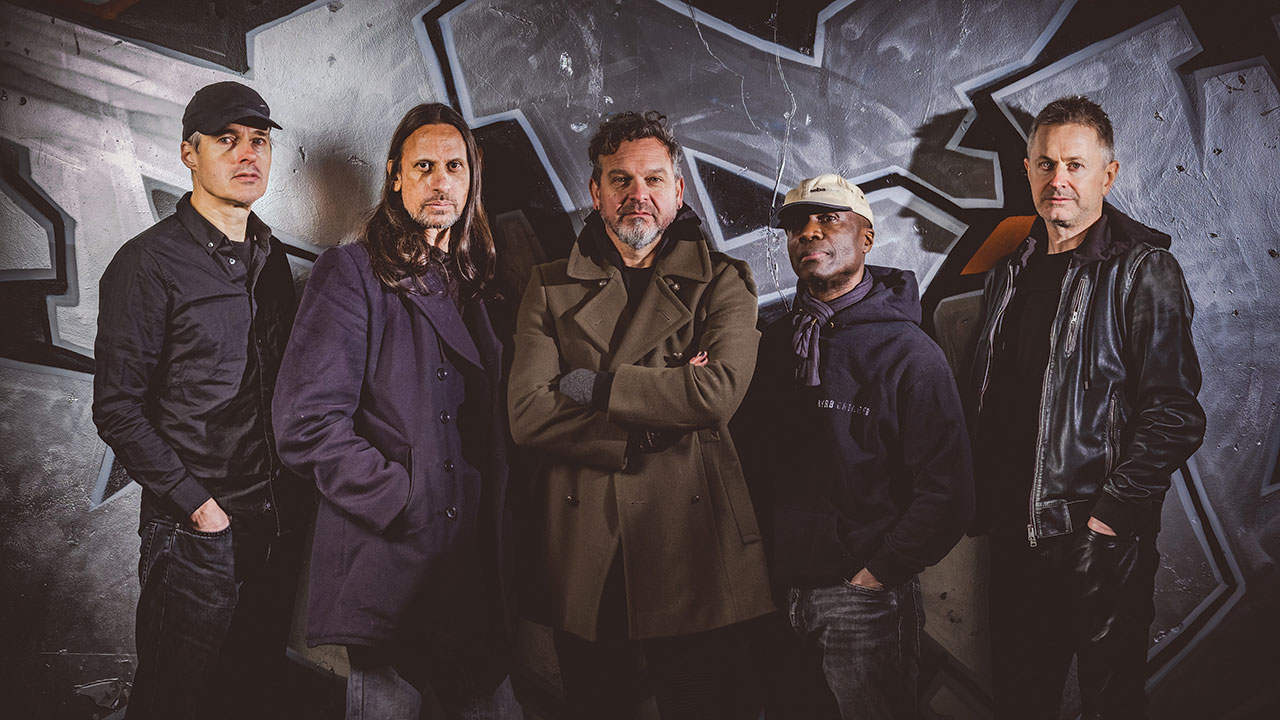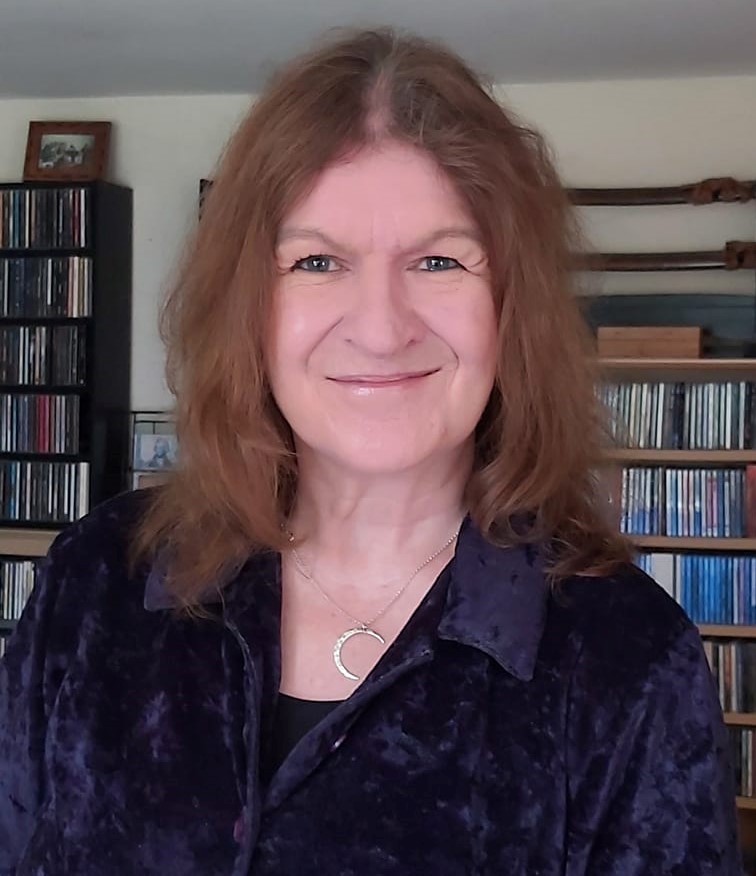With tensions between band members past and present now resolved, in 2022 Threshold's founding guitarist and producer Karl Groom shed some light on the bleak themes explored on their 12th studio album Dividing Lines.
A revolving door’s been in operation at Threshold HQ throughout the veteran prog metallers’ 34-year history, most notably in the lead vocals department. The last revolution in 2017 saw singer Damian Wilson leave for the third time and the return of other erstwhile vocalist Glynn Morgan for their 11th studio album, the epic Legends Of The Shires.
Five years later, studio album number 12, Dividing Lines, was handed to the record company in January, heavy CD and vinyl pressing schedules delaying its release. The hold-up frustrated Karl Groom, Threshold’s founder member and lead guitarist, who was hoping for a summer release. But, as he tells Prog, it’s only because he’s so happy with the finished result.
“I feel really confident about this album,” Groom enthuses. “I love the sound we’ve got on the vocals and how the music on it has come together.”
Billed as Legends Of The Shires’ darker, moodier brother, Dividing Lines delivers 10 contrasting cautionary tales reflecting on a fractured world its dissonance, discordance and strife. On it, Morgan re-establishes himself not just as an incisive vocalist and rhythm guitarist, but as composer of three of its hard-edged, immersive songs alongside Threshold’s regular writing team of Groom and keyboard player Richard West.
“On Legends…, we worked on the idea of a country trying to find its way in the world with a dual theme of a person finding their place,” Groom explains. “It wasn’t intended to be a direct commentary on Brexit, but it did tie in with that in certain places. We didn’t want to make it political in that way as that would be too divisive. However, it created a real buzz, and we toured a lot with it. That’s probably the reason why, to some extent, we delayed writing this new album.”
But the direction of creative travel was an issue early on. “At one point, we thought we were making Legends’… follow-up. There had been a real connection between us and the fans, something to which they really responded, and we thought it would be great to continue that,” recalls Groom.
“Then it began to feel a bit contrived, and we thought, ‘Hang on, we are kind of writing to order?’ I’ve always had a cut-off point with previous albums in that if I had songs I liked but didn’t put on the album, I would never use them again. This time, we thought, ‘Let’s just write the songs we want to write, assess where we are, see what fits and how those songs come together.’”

Groom saw a new theme developing as those songs evolved. “It has ended up being more like Subsurface, our seventh album released in 2004, which had elements of political commentary, talking about propaganda and censorship, which you can hear in the single Silenced that Richard wrote.”
Silenced has since been translated into a hard-hitting video of a young boy pursued by a robotic enemy through woodland, which perfectly frames West’s lyrics, ‘The shouting of a dream/Was nothing but a scream inside/As everyone was silenced.’
Groom explains, “People feel they’re not being heard and are being closed off from society. It’s very easy to find these themes due to the way things are going with populist governments all over the world. As Glynn was thinking along the same lines musically, it wasn’t too difficult to put it together.”
The album’s title comes from a line in Morgan’s climate catastrophe song, Let It Burn. “With this, Glynn was almost nodding back to our first album, Wounded Land, thinking about Mother Earth and mankind’s path of destruction,” Groom observes. “Let It Burn’s got more of a progressive element to it with a slower choral section at the end. He sent the demo through late on a Friday night when my wife and I usually sit down to really listen to music. This was the first song from Glynn, and she was interested in it too, especially when we thought it had finished, then that dramatic final ethereal section came in!”
The contributions from Morgan, originally the band’s vocalist between 1993 and 1996, impressed Groom a lot.
“I was really pleased with the way in which Glynn has matured, as I was judging him from what he did in 1995 and thought he would be writing something like on [second studio album] Psychedelicatessen or a more metal influence. But he’s developed so much as a lyricist and songwriter.”
Morgan’s wrathful King Of Nothing was chosen as the album’s second single. Again, Groom was delighted. “This wasn’t what I was expecting from Glynn. He has a style of writing which makes me smile every time I get a demo from him.”
Sequencing was perhaps the most challenging part of Dividing Line’s development to achieve a balance between the differing moods and styles of the songs. Haunted, the full-on Threshold-minted rocker that opens the album, wasn’t originally considered as the obvious curtain raiser.
“Richard and I were trying to structure the album but couldn’t find the continuity, then suddenly, we juggled everything and Haunted came up on top,” says Groom. “We really had to think about the dynamics as you can’t put all the long songs together. In fact, the whole album was a difficult one to arrange compared to Legends…, where we could slot in the songs around the storyline.
“In the beginning, we wanted to split up the songs written by Glynn, and the ones that Richard and I wrote because ours morph into one in some ways and they sound like Threshold. We were not so sure what would happen with Glynn’s, but we needn’t have worried because the whole thing really does sound homogeneous.”
A third single, Complex, written by West and a particular favourite of Groom’s, is due out on November 18 to coincide with the album’s release date.“This is a great song and a real commentary on life,” he says. “There is a key change at the end which drops a semi-tone, which is really nice. Richard’s wife, Farrah [League Of Lights], is a great singer so he gets her to sing the demos, such as on this track, then we will then adapt the vocals to suit us.”
Despite a healthy batch of singles coming from the album, Groom is bemused about the current received wisdom to promote albums by drip-feeding individual songs, which he feels stunts some of the excitement surrounding new releases.
“The only thing I dislike about the way things have gone in music is what I call the lack of occasion,” he declares. “When I was growing up, there was a record store in my local town, Egham [in Surrey]. I [would] walk down there and order, say, the new Genesis album, on the day it came out. People would be queuing and getting excited about the album, then would get together, meet in school, and talk about it. It was such a big deal back then!”

In tandem with Threshold’s rock-steady riffs and strong melodies, Groom reveals there are one or two surprises on here, in particular Hall Of Echoes. “It’s a very intimate song and the verses have almost a sort of Toto quality to them, which isn’t normally someone we would have as an influence. The keyboards have that kind of intimate sound that they had during their mid-period.”
Another significant track is West’s The Domino Effect: “I don’t know how he fitted so much into it. It’s only about six and a half minutes in length with a long instrumental section, but it feels as though there’s a heck of a lot going on in there in terms of a story. With its repeat choruses, it’s a bit like the epic The Man Who Saw Through Time on Legends Of The Shires.”
The theme of voicelessness in Silenced is revisited in Lost Along The Way, which is about being heard on the internet. “Pre-internet, people were happier before they had a voice because they were equal. Now it’s very hard to censor or have rules because if you create rules, you penalise an area of society,” Groom opines.
“I don’t know how we get out of this rabbit hole. The internet brought so many positive things that you can’t imagine being without it, but that negative element [of being voiceless] can really affect people badly. As a person with children, I constantly worry about these things.”
Following Lost Along The Way is Run, a typical heavier track composed by Morgan, which Groom says really works alongside the thunderous, dramatic closer, Defence Condition.
“It’s a matter of changing the colour between songs, then the dynamics, length of song and tempo. You have to get things right, so you don’t get big jumps for no reason: instead, you get a gradual build. When you’re a prog band with all these dynamics, you need to structure it carefully so you can listen to the whole album with tracks in the right order. It’s like creating a play or novel.”
Morgan’s return has also enabled the band to slim down to a five-piece with drummer Johanne James and Steve Anderson on bass rather than their usual six-member line-up that had previously led to some simmering tensions within the ranks. Groom’s happy that Threshold’s alumni are friends again, notably Wilson, who’s now fronting Arena, and former guitarist Pete Morten, but it wasn’t always thus.
He recalls cryptically: “There was conflict, which may have started between Pete and Damian, but it alluded to a problem with the whole band. I recall it began with an innocuous irritation over towels, but when you’re constantly touring and working together, it becomes bigger and bigger.
“We’ve managed to sort it all out now. Johanne and I did the drums for Pete on his new My Soliloquy album, Fu3ion. I’ve seen Damian several times recently and we’re on good terms, while we were previously in a difficult situation when he wanted to move on and do something different.”
Although, at time of press, they didn’t have any live shows lined up, Groom is optimistic that Threshold will be in a position to resume touring again next year in Europe where their biggest fanbases are in Germany, Switzerland, and the Netherlands.
“We haven’t been abroad since October 2019. We probably play 20 dates in Europe a year but can’t do it any longer. Our only gigs in the past two years have been in the UK – at the Shepherd’s Bush Empire and the HRH Festival in Sheffield.”
But, he warns, the UK government need to put a deal in place with the EU to safeguard British artists, musicians and technicians who want to work in Europe.
“I accept we’ve left the EU, but I don’t want to be like an office worker going on tour, constantly checking documents, and getting everything stamped. We want to concentrate on making music.”
Despite the current red tape around touring, their musical divisions and differences now behind them and Dividing Lines sees Threshold hitting new heights in moody prog metal magnificence.

